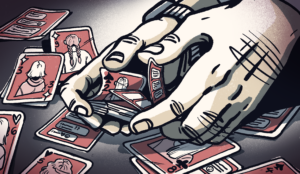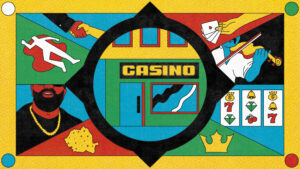The state’s arms manufacturer leased private jets to bring masks from Vietnam, while our military aircraft were used to transport masks for private companies at a very low price.
However, the first leased planes were also military, but they belonged to the Ukrainian Army. Brought to the country a year ago, the masks still lie unused in a warehouse near Bucharest.
Their transportation alone cost us $ 5.3 million.
The transportation costs were paid by Societatea de Administrare a Participațiilor în Energie (SAPE).
Those who decided the business are now proposing a breakdown solution: the Ministry of Energy should give up the money from SAPE ‘s profit, through a non-transparent compensation, and receive the masks as dividends.
The compensation would be worth $ 30 million.
The scheme of the business and the correspondence between Hanoi and Bucharest show how, in the midst of a sanitary crisis, we wasted the money we could have used to build a brand new hospital..

THE DECISION MAKERS
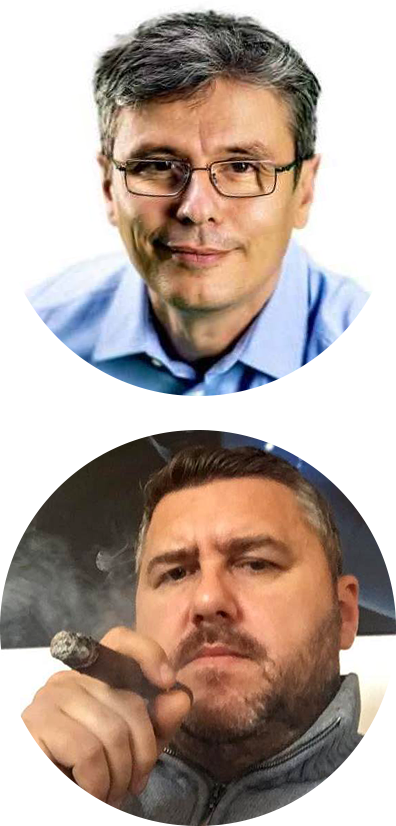 Virgil Popescu, former minister of Economy. He approved the purchase of a record quantity of masks from Vietnam, last year. He changed, overnight, the object of activity of an energetic company, SAPE, in order to buy the masks, but then he mandated another subordinate company – Romarm – to purchase them and take care of their transport. Meanwhile, Virgil Popescu was appointed Minister of Energy and now proposes that the ministry receive unused masks as dividends.
Virgil Popescu, former minister of Economy. He approved the purchase of a record quantity of masks from Vietnam, last year. He changed, overnight, the object of activity of an energetic company, SAPE, in order to buy the masks, but then he mandated another subordinate company – Romarm – to purchase them and take care of their transport. Meanwhile, Virgil Popescu was appointed Minister of Energy and now proposes that the ministry receive unused masks as dividends.
Gabriel Țuțu, head of Romarm. A former SRI officer, Țuțu signed the contracts with the suppliers and the transporters. Used equipment for the production of masks at an armament factory near Targoviste were also brought from China with Ukrainian military planes. After the Vietnam deal, Țuțu was promoted to the supervisory board of the SAPE company, which had borne the costs of masks acquisition and transport.
THE WAREHOUSE
A warehouse surrounded by barbed wire located on a field, almost two kilometres away from Otopeni airport, stores the protective masks that have cost us, so far, over 30 million dollars.
This is the price paid by a state-owned company bought, in May 2020, for the purchase and transport of almost 96 million protection masks.
Now, a year later, 90 million masks are still stored in the warehouse in Otopeni, generating additional storage costs. The other 5,2 million masks were distributed to school inspectorates and used by students at last year’s national exams.
“The masks are still in my warehouse due to bureaucracy”, says Liviu Dragoș Rădulescu, the owner of Master Mind, the company that operates the warehouse in Otopeni. Rădulescu refused to show them to us and also to tell how much he charges for storage: “I have a confidentiality agreement and without the owners’ consent I can’t give you any further details””I have a confidentiality agreement and without the owners’ consent I can’t give you any further details”.
However, he claims that he receives less than he usually charges for such services and that there is nothing wrong with the masks that remained in his warehouse: “The authorities checked on me, even the police. I never had this many inspections in my life as I had in the last three months.”.
We found out the location of the warehouse when we were trying to find the answer to a simple question: why did the state buy a huge quantity of masks and never used them?
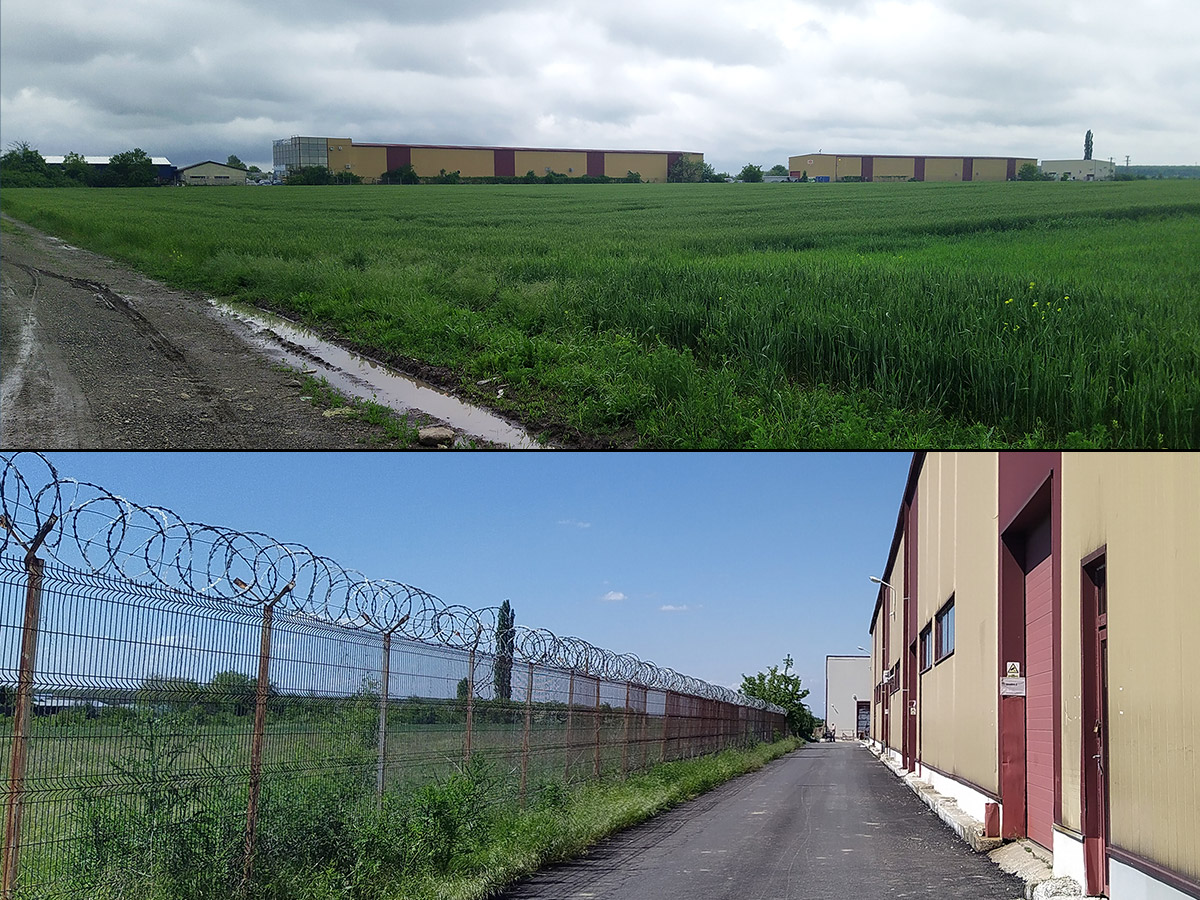
There were no measures taken, not even after Hotnews published, on January 22, 2021, the information that the masks lie unused, half a year after their purchase.

Ludovic Orban. Sursa: Facebook
Instead, a few days ago, on May 18, 2021, Ludovic Orban, the president of the Chamber of Deputies, criticized the fact that another 11 million masks bought a year ago, when he was prime minister, are still unused, although the Ministry of Health bought them with the purpose of distributing them to disadvantaged people.
Although the masks were purchased also during his term as prime minister, Ludovic Orban did not mention a thing about the eight times larger quantity of masks stored in Otopeni.
How did we get here?
The acquisition had a very slow pace. A month and a half passed since the company controlled by the Ministry of Economy decided to buy the masks until they arrived in the country. In the meantime, the market prices had fallen so the state-owned company could no longer cover its acquisition, operating and transportation costs. The only winners in this deal were the companies in the supply chain.
MASKS AS DIVIDENDS
Even these days, the Ministry of Energy is proposing a breakdown solution to get rid of the masks in the warehouse: masks instead of dividends.
As a shareholder, the ministry has to receive from SAPE dividends of almost 331 million lei for 2020 and proposed that a part of the profit will be in the form of protective masks, according to documents obtained by RISE Project. The amount that the ministry wants to give up is a maximum of 142 million lei (almost $ 35 million).
The compensation is mentioned only in a document that is accompanying the draft budget of SAPE for 2021, so that the details of the financial arrangement are not public. The draft budget has already been approved by Virgil Popescu, Minister of Energy, but has been blocked in the Ministry of Finance, which, according to our information, does not agree with the solution.
The non-transparent compensation would relax the SAPE budget, which cannot neither sell the masks below the purchase cost nor donate them. Instead, the Ministry of Energy can distribute them as it wishes, even donate them, according to the consulted experts.
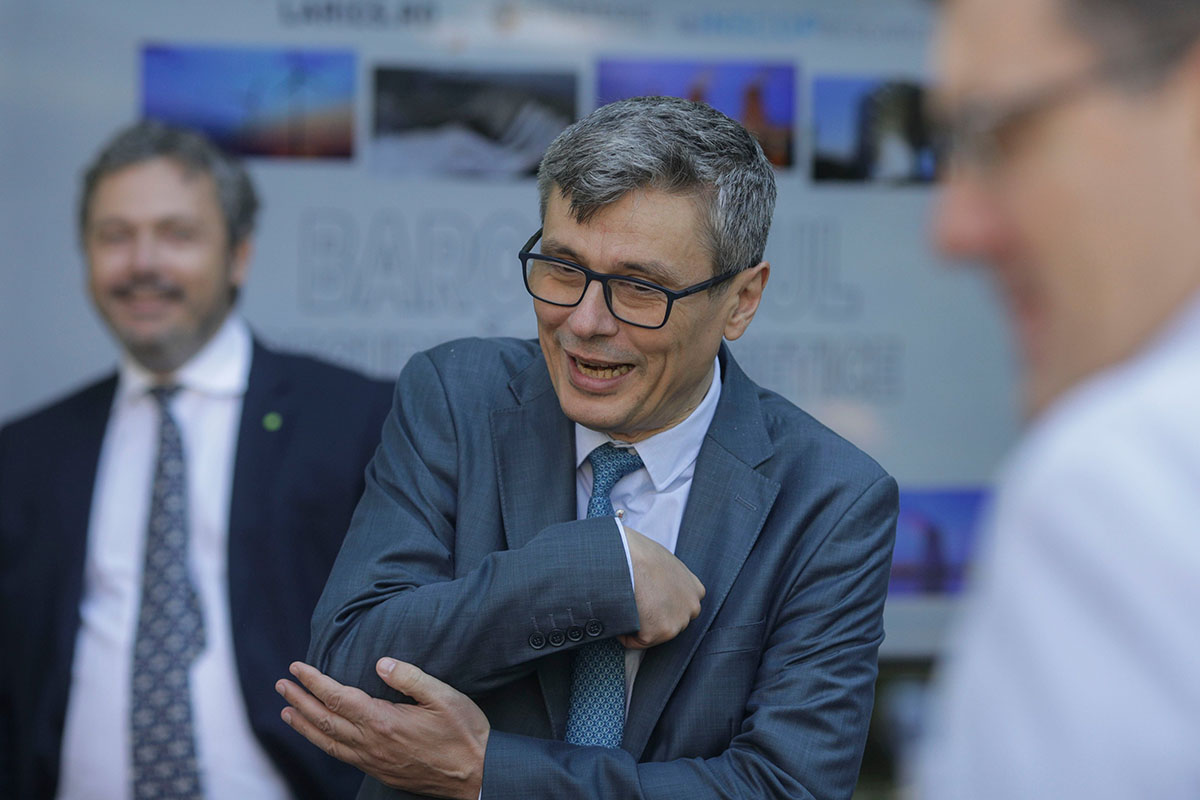
Virgil Popescu. Photo: Inquam / Octav Ganea
Virgil Popescu is the same person who approved the purchase of masks last year. At that time, he headed the Ministry of Economy, which controls SAPE. He did not answer our questions on the subject.
The first masks were brought from Vietnam by Ukrainian military planes,, contracted by a Swiss company with secret shareholders.
Transportation alone cost us over $ 5.3 million. The correspondence from those days between Hanoi and Bucharest, obtained by RISE Project, shows how the officials wasted 42 days before the masks’ acquisition.
THE CORRESPONDENCE
As early as February 26, 2020, Luiza Gîrleanu, the economic adviser at the Romanian Embassy in Hanoi (Socialist Republic of Vietnam), announced in Bucharest that she had found a manufacturer who could supply masks at a price of $ 0.3 (1.33 lei at that time).
Stocks were empty in Hanoi as well, so delivery could only begin on March 16. The sanitary crisis had spread across the globe, and the states had begun a race against the clock to get protective equipment.
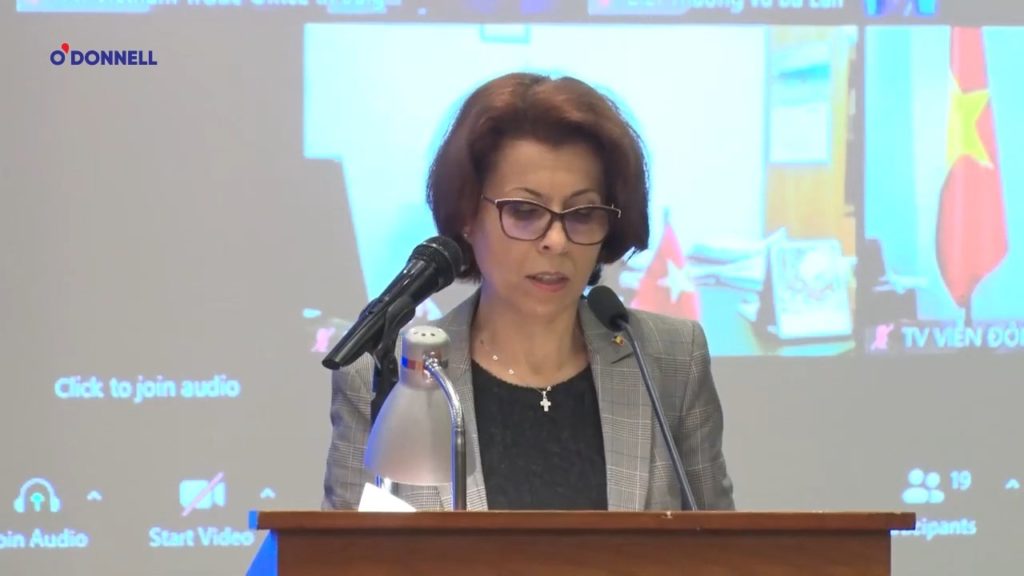
Luiza Garofița Gîrleanu, a 52 year-old economist, has been on a mission in Hanoi since 2018. When we contacted her on the subject, she told us to send her the questions by email, but she never answered them. Instead, she informed her bosses that a reporter from RISE Project is interested in the mask business.
Luiza Garofița Gîrleanu. Source:YouTube screenshot.
On March 31, Luiza Gîrleanu requested from Bucharest a list with medical materials and the quantities needed to fight the new coronavirus, as she had had a promising discussion with a director of the Vietnamese Ministry of Industry and Trade.
But the acquisitions were already made in a centralized way in Bucharest through two other state structures: the National Office for Centralized Procurement (ONAC), an institution under the Ministry of Finance, and, UNIFARM, a company owned by the Ministry of Health.
Yet, the Ministry of Economy still decides to enter the mask trade on its own. It also has a competitive advantage: it coordinates the network of commercial advisors in our embassies. They are very close to the local market and can easily find out who sells and at the price. This was also the case of Luiza Gîrleanu, who announced to the Bucharest officials about an offer she received at the end of February.
Things started to move fast on April 1, 2020, when a company controlled by the ministry decided to change its object of activity in order to trade masks. The company is called the Societatea de Administrare a Participațiilor în Energie (SAPE) and deals with monitoring the fulfilment of the obligations resulting from the privatization contracts concluded by Electrica S.A. SAPE requests the completion of the object of activity, and the Minister of Economy, Virgil Popescu, signs the approval order on the same day.
On April 3, SAPE already has the right to sell medical items, after operating the amendment to the Trade Register.
Then, for 42 days, no contract was signed, only emails were sent.
For example, on April 30, 2020, the Ministry of Economy received from Vietnam a list of 18 mask manufacturers. Only 6 of them had the necessary certifications for export to European Union countries.
Then, on May 6, 2020, a Vietnamese company offered four-layer face masks for only $ 0.085/piece. But nothing happens.
It was only on May 8, 2020, that the Ministry of Economy mentioned in an internal document the quantity of masks needed: maximum 100 million masks.
It was a record quantity for those days and was surpassed only by the masks acquisition made by the Ministry of Health for disadvantaged people.
But SAPE decided not to do the import anymore, although it had changed its object of activity overnight precisely for the trade with masks.
The management of SAPE suddenly realized that it does not have the necessary expertise to import. So it turned to Romarm, the national company specialized in weapons production, which is also in the portfolio of the Ministry of Economy.
Romarm thus receives a special mandate to deal with imports.
How does SAPE management motivate the change of plan? “Romarm has a long tradition in the defence industry, embodied in the experience of over 75 years, an activity that involved international economic and financial transactions, at governmental level.”
So the official correspondence flows into a private email of Gabriel Țuțu- the director of Romarm,. On May 10, he wrote to the economic advisor in Vietnam, using the e-mail account of a company in which he is an associate. Țuțu thus announces Gîrleanu that he has been given the task of importing masks from Vietnam and that he has identified a potential supplier in the Hanoi area.
Gabriel Țuțu asks Luiza Gîrleanu to help him check the conformity and the existence of the mask factory, underlining that “In this regard, we already have the approval of the Minister of Economy, Mr. Virgil Popescu”.
The next day, on May 12, 2020, just before Romania got out of the state of emergency situation, the contract was signed.
THE COMMISSION
Romarm was to receive a commission of almost $ 300 thousand for the purchase of masks. According to the mandate contract, the other company subordinated to the ministry, SAPE, had to pay a commission of 1% of the value of the goods.
Romarm was responsible for checking the quality of the masks, testing them and dealing with the bureaucracy of transactions. The procurement contract with the Vietnamese supplier was signed on the same day that Romarm received the mandate to deal with the import.
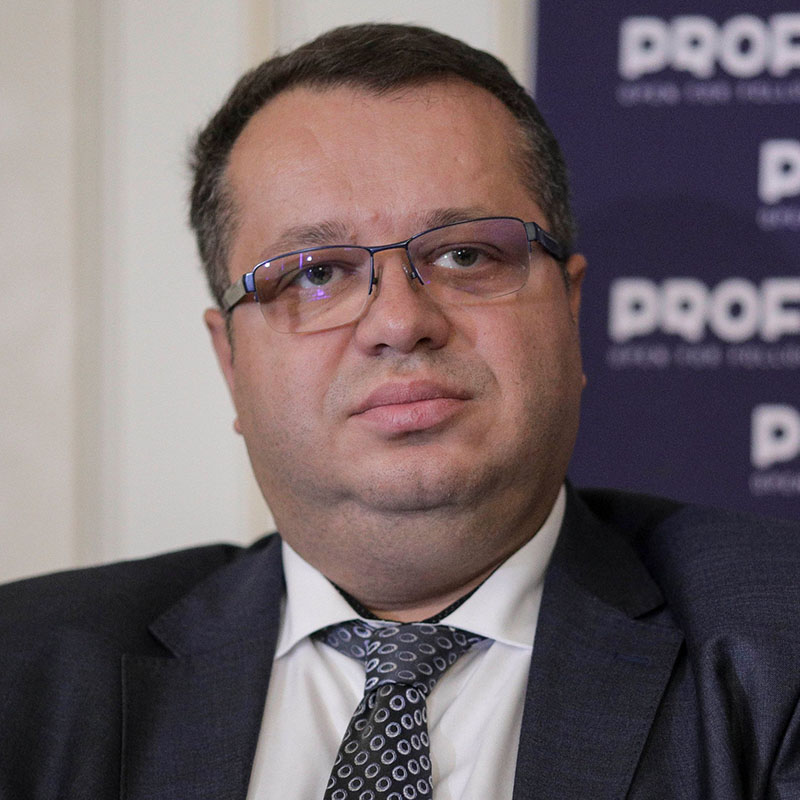
Bogdan Stănescu (Photo: Inquam / Octav Ganea), the president of the SAPE directorate, signed the mandate contract with Romarm. He was often in the media spotlight for the many state companies boards on which he was appointed. For example, in 2019 he earned over 40 thousands lei per month from SAPE, AVAS, Oltchim, Romgaz and Rompetrol plus an undeclared amount from the National Bank of Romania.
On May 12, SAPE pledged to transfer no more than $ 30 million for a maximum of 100 million masks to the account of Minh anh Medical Joint Stock Company. The masks were to be delivered by June 20, 2020.
However, the mask manufacturer was another Vietnamese company: Orange Pharmaceutical Company Limited, which had only 3 employees in March 2020.
Among other things, the contract says that the products are accompanied by an EC quality certificate, an ISO certificate, a certificate for the raw materials used and a quality certificate of the final products.
The masks arrived in Bucharest accompanied, among others, by a certificate of conformity issued by QSA International Limited, London company registered by an Indian citizen, having a registered office at the same address with other 35 thousand companies.
After the first two shipments of masks, Luiza Gîrleanu told Romanian officials that “no manufacturer of first-class medical masks in Vietnam, and probably throughout Asia, has certifications from EU-notified bodies, as long as the directives do not require it. Instead, they hold certificates issued by third parties, such as the QSA.”
The certificate issued by QSA International states that the manufacturer places the CE marking with his own responsibility.
Since May 25, 2020, the masks produced by Orange Pharmaceutical officially appear in the database of the National Agency for Medicines and Medical Devices (ANMDM), at the request of Romarm. The registration was made after some documents had been submitted to ANMDM, a few days before.
One of the needed documents was a certificate issued by a notified body. Notified bodies are companies designated by European Union countries to assess the conformity of products before they are placed on the market. QSA International LTD does not appear in the European database of these entities.
Last year, we obtained a few masks bought by Romarm and we tested them at the Center for Scientific Research for Defence from the Ministry of Defence. Lab experts said the samples passed the bacterial filtration efficiency and breathability tests and concluded that they were compliant.

Romarm also had to conclude a transportation contract at a maximum price of $ 350,000 per delivery and pay for support services in Vietnam ($ 25,000), the delay fee, handling (1900 euros), loading (0.18 euros / kilogram) and storage (0.04 euro / kilogram) services.
WHO WON
The first transports were done through Allodium SA, a Swiss company with a share capital of almost $ 110 thousands. It received $ 1.75 million from Romarm for five flights from Vietnam, with an IL-76MD, a Russian-made military plane.
The only aircrafts of this type that landed in Otopeni, in May 2020, belonged to the Ukrainian Air Forces, according to information obtained by the RISE Project from www.flightradar24.com. Allodium brought almost 100 tons of masks using these aircrafts.
A month earlier, Allodium provided another shipment for Romarm. It had then received over $ 370 thousand for the transport from China of masks production equipment bought by Romarm. The equipment also landed in Bucharest with a Ukrainian Air Force plane, but it broke down shortly after it was installed at the Dragomiresti Munition Factory. (RISE presented the details of that deal HERE.)
In the same period, The Romanian Air Forces brought masks for Romwine&Cofee SRL, a company that had undertaken the transport by private planes. Instead, the money for transport was borne by the Department for Emergency Situations (DSU), the beneficiary of the masks, which requested the logistical support of the Air Forces. The detail emerges from a report by the Court of Accounts which verified the management of public resources during the state of emergency.

We asked the Ministry of National Defence if they received any requests to transport masks from Vietnam last year.
The answer? “No request for support for the transport of medical supplies from Vietnam was received by any of the Ministry of National Defence structures with attributions in the field.””
Other private companies that made air transports on the Romania – China route, comparable in distance to Vietnam, contracted flights at much lower prices in the first months of the pandemic, according to documents obtained by RISE reporters.
Romarm stopped collaborating with the Swiss company Allodium after five flights. The reason? The Ukrainian military plane, contracted by the Swiss company, was not suitable for the volume of cargo.
The five flights were approved by Gabriel Țuțu, the director of Romarm.
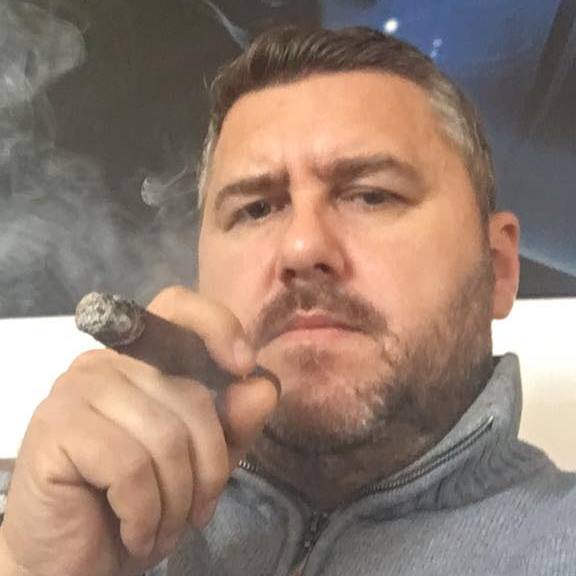
Gabriel Țuțu. Source: Facebook
Meanwhile, Țuțu was also appointed a member of the supervisory board of SAPE, the company that had mandated him to import masks from Vietnam. He did not answer us on this subject, but last year, when we were documenting the transport of the masks production equipment from China, we also asked him about the Vietnam business.
Gabriel Țuțu had a different version than the one proven by the official correspondence. He said that he had contacted the Vietnamese company through the economic adviser of our embassy, although he was actually the one who informed Luiza Gîrleanu that he had identified a supplier and that he needed her to do the checks.
The Romarm director also explained that the final discussions were held at a high level: “The Minister (Virgil Popescu) called the Vietnamese Minister of Industries to ask for confirmation about these two companies. The Minister of Industries later confirmed that the company existed and was trustworthy. Furthermore, who they are, honestly, is beyond me”.
We also asked him how the masks were brought:
“At first, we brought them through the company of the Ministry of Defence of Ukraine, the same one we collaborated with for the machinery. Afterwards, as things began to relax, we turned to SLS Cargo to provide us with high-capacity aircrafts. We used a Boeing 747-400, then a Boeing 747-800.”
SLS Cargo took over the transport for another reason. It was confirmed to us by the head of the company, Mihai Stoica: “We took over the flights because the Ucrainian planes were not probably capable of delivering the goods on time”.
Stoica also remembers that one of the Ukrainian planes broke down at Otopeni airport and then the state company asked him for flight offers. He recommended Boeing 747 planes: “Basically, these planes have a capacity which is four times bigger than the planes they used in the beginning.”
Why did Romarm choose the planes from Ukraine? Gabriel Țuțu claims that it was Minister Virgil Popescu who asked him solve the transport problem:
“They couldn’t agree on how to bring them here, on how to actually transport them. So, because I was already doing this with the plane from the Ukrainian Air Forces, the minister told me to handle this, because they really had no experience. So I did it.”
The shareholders of the Allodium company, the one that did the first shipments of masks, are secret. The company has its registered office in the Swiss canton of Zug, a well-known tax haven, in the offices of a law firm – Goldblum and Partners AG. The law firm works as a cover for the real beneficiaries of Allodium, not mentioned in the Swiss register of companies. Through Marcus Altenburg, a German citizen, the law firm also provides the administration of the company that brokered the masked flights to Bucharest. Altenburg replacedUkrainian Dmytro Pichugin in December 2020 as head of the law firm.. 41-year-old Pichugin also managed the British branch of the law firm Goldblum and Partners LLP, until its dissolution in 2019. There, he was a partner and had several off-shore companies from Belize.
In the end, Allodium received $ 1.75 million for five flights. The amount did not include airport taxes, crew accommodation or fees for loading or unloading delays. The last airplane landed at Otopeni airport on May 27, 2020.
Even after the collaboration with the Swiss company ended, Romarm did not request the support of the Ministry of National Defence, to which it delivers military products. Instead, it paid another $ 3.5 million to SLS Cargo Bulgaria for four flights on the Hanoi – Otopeni route.
The money collected for transport exceeds the total revenues of the Bulgarian company in 2019.
Mihai Stoica, who coordinates the Bulgarian branch, claims, however, that Romarm actually saved money by signing a contract with him:

A few months before signing the contract with the state-owned company, Mihai Stoica had sold 60 percent of SLS Cargo Romania to associates in the Fan Courier group.
“They even saved at least $ 2.5 million, according to our calculations.”
We asked him why he did not use the company in Bucharest, but the branch in the neighbouring state to transport the masks?
He explained that the SAPE wanted payments directly in foreign currency because they already had money exchanged and would have lost too much to make the transfer in lei again: “They didn’t want to exchange the money again and asked us to pay to a foreign company from the group. The only companies in the group that we have are in Bulgaria and Italy (…) They said it was ok to use the Bulgarian company”.
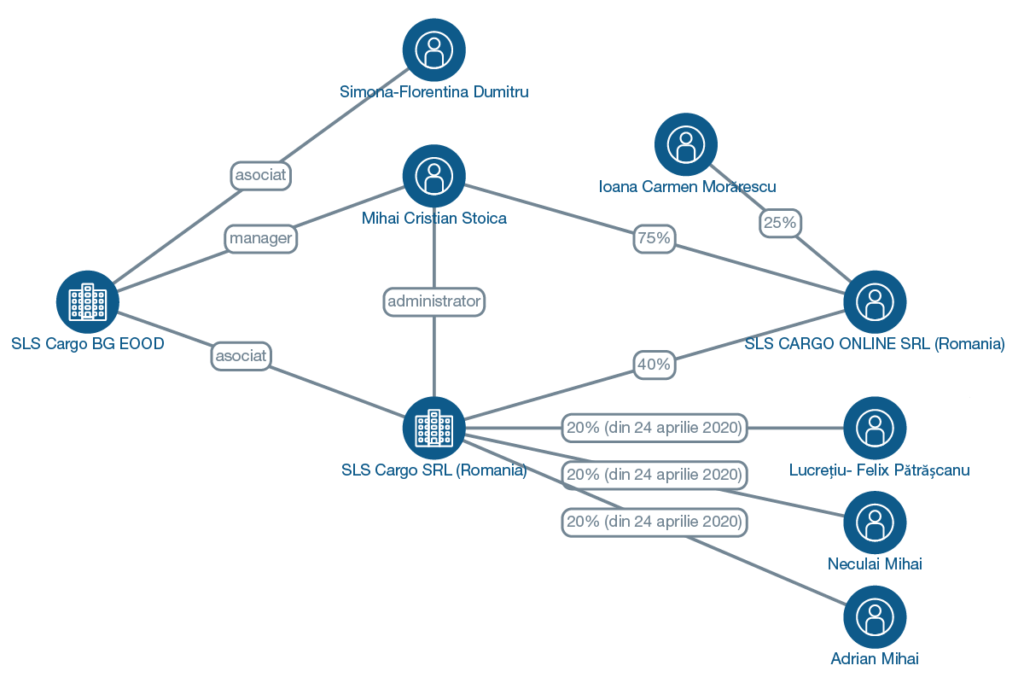
Using the Bulgarian company, the masks arrived in the warehouses in Otopeni, owned by Master Mind SRL. They are still there today.
Technically speaking, the masks are in a customs warehouse.
So, as the Romarm director says, they did not have to pay taxes for the masks:
“They are in the customs warehouse precisely because an European directive says that the end user of masks and medical products to fight against COVID19 is exempted from paying VAT and customs duties. And this customs warehouse’s purpose. Given that SAPE set out to sell to the Ministry of Education, which is the end user, and the Ministry of Health, which is again the end user, then they went for the option in which these ministries import these products from the warehouse and no longer pay VAT and custom duties.”
But the masks never reached the Ministry of Health. It was only the Ministry of Education which bought 5.2 million pieces.
According to the documents obtained by RISE Project, a total of 95,970,500 masks with four layers, meaning 426 tons, entered the customs warehouse. Their price, at no other cost, was $ 26,108,422. The first 75,572,500 masks were purchased for $ 0.3 each. Then another 20,398,000 masks, for almost $ 0.17.
The storage contract does not mention the actual amount that the state company has to pay, but only a price list for several types of services.
Separately, Romarm also concluded, on behalf of SAPE, a contract for ground handling services, i.e. for the cargo handling. The operation was managed by Uplift Airport Services SRL – controlled by Marius Puiu, a former Blue Air shareholder.
Calculations show that Uplift received nearly $ 400,000 for its services.
Cătălin Ilie, the company’s representative in the contract with SAPE, told us that the services were provided by local partners: “They (SAPE and Romarm) did not make transports before and had to contact some agents there (from Vietnam). We reached some agents who were our partners to provide our loading-unloading services, cargo screening, storage and so on there and they budgeted us for the operation at an amount of $ 25 thousand. In the end, after the operation was over, they would send us the final invoice with the exact amount depending on the quantity transited and loaded on the plane. We took over exactly these costs and made invoices with the same amount for SAPE. We didn’t make any profit from this deal.”
SLS Cargo and Uplift were also involved last year in transporting masks for Naguma Medical Supply company, owned by businessman Michael Topolinski.
Naguma provided masks to disadvantaged people, through a contract with the Ministry of Health, of which Ludovic Orban says that 11 million masks remained unused. They were part of a larger acquisition first launched by the Ministry of Health on June 12, 2020. Up to 115 million masks were to be purchased. The state-owned company SAPE then signed up for the auction organized by the Ministry of Health, but lost the contract.
To bring masks from China, Topolinski concluded contracts for transportation and handling, including with SLS Cargo and Uplift Airport Services SRL, but their collaboration reached the court, due to financial disputes.
HOW THE STATE FIGHTS AGAINST ILLEGAL TRADE
The energy company claims to have entered the mask trade because it wanted to fight speculation at the beginning of the pandemic. At least this is what SAPE representatives argue: “(The company) was actively involved in the process of providing products in Romania to prevent and combat COVID 19 in order to balance the market for these products and reduce illegal trading activities that flourish in times of crisis. ”.
However, SAPE fought speculation by selling more expensively than private traders. On May 28, 2020, it delivered almost 5.2 million masks to the Ministry of Education, which had concluded a framework agreement with several companies.
The price offered by SAPE was exceeded only by another state-owned company, Unifarm, whose purchases are now being investigated by prosecutors. (MORE DETAILS, HERE)

Ana POENARIU
Other contributors: Ioana MOLDOVEANU, Valeriya Egoshyna (“Schemes” project RFE/RL)
The article is part of the project ”The COVID Beneficiaries Platform”, developed through the Stanford University journalism grants (John S. Knight Fellowships and Big Local News, financed by Google News Initiative).
The article was partially supported by the project “Demanding transparency in times of crisis: joint action from CSOs & journalists” financed by The Black Sea Trust for Regional Cooperation (a project of the German Marshall Fund).
The article was partially funded by the Friedrich Naumann Foundation for Freedom Romania, which is not responsible for the content of the article. The opinions expressed exclusively belong to the authors and do not necessarily reflect those of the Friedrich Naumann Foundation for Freedom.
